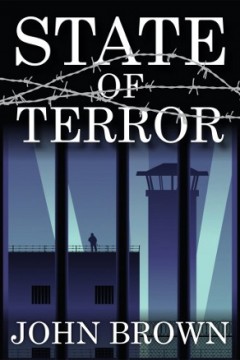
In the interest of full disclosure, here are the books we’ve received in so far in February:
State of Terror by John Brown is a dystopian thriller set in a near-future United States following a new wave of terrorist attacks that have enabled the government to ramp up the domestic war on terror.
Drone Pilot 2061 by Thomas Diogenes is a scifi action tale about a drone pilot fighting to protect the drug trade against Christian and Muslim theocracies.
[continue reading…]
Help Promote Prometheus Unbound by Sharing this Post

Prometheus Unbound has been on unannounced hiatus for a while now. We’ve all been rather busy with work and family and other projects. But I will be reviving it and the podcast. Reviving the site and keeping it going will of course be easier if we have more contributors, so if you’re interested in publishing news, reviews, articles, interviews, and the like on Prometheus Unbound, please contact me.
The main subject of this post, however, is one of the other projects that has been occupying my attention. I recently launched, in November 2013, the Libertarian Fiction Authors Association.
If you’re like me, you enjoy reading fiction but have a difficult time finding stories that truly reflect your values and interests. This discovery problem affects everyone, but is particularly acute for niche markets like ours. There are individuals and organizations (including Amazon) attempting to solve the problem for authors and readers in general, but no one was really catering to libertarians specifically. Even Prometheus Unbound cannot provide the solution: it’s primarily about providing a libertarian perspective on the fiction that interests us, particularly science fiction and fantasy, much of which is not produced by libertarians.
How many libertarians out there have published fiction? How many more are aspiring authors, who are either writing their first novel or are thinking about it but need some encouragement and guidance? I had no idea, but I was sure there were far more than I knew about personally.
As an activist, I also think that dramatizing our values through fiction is an important way to spread the message of liberty.
As an aspiring fiction author myself, I wanted to form a group made up of fellow libertarian writers who could learn from, encourage, and push each other to accomplish their goals and continually reach for new heights — and, eventually, to get my stories into the hands of new readers.
[continue reading…]
Help Promote Prometheus Unbound by Sharing this Post
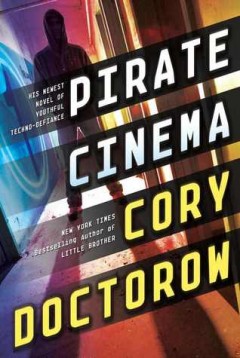
The Libertarian Futurist Society issued a press release on Saturday, July 20th, announcing this year’s winners of the Prometheus Award for Best Libertarian Novel and the Hall of Fame Award.
Best Novel
Winner
Finalists
Hall of Fame
Winner
Finalists
My thoughts on the results briefly: I still wish actual libertarian authors would win more often. Step up, people!
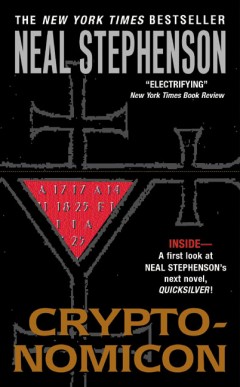
There are a number of familiar names listed here, including past winners Cory Doctorow, Sarah Hoyt, Dani and Eytan Kollin, Neal Stephenson, Poul Anderson, and Donald M. Kingsbury.
Tobias S. Buckell, Daniel Suarez, Lois McMaster Bujold, Harlan Ellison, and Rudyard Kipling have been finalists before.
In other words, no newcomers made it to finalist this year. I hope this doesn’t become a trend and that fresh talent is not being overlooked.
I haven’t read Pirate Cinema, but I have reviewed three of Doctorow’s previous novels: Little Brother (2009 winner), Makers (2010 finalist), and For the Win (2011 finalist). I hope that Doctorow was able to sustain his radical momentum through the end of the book this time around, but if he follows the pattern set in these other books I expect Pirate Cinema to have a rather milquetoast ending as well. I hope I’m wrong, because it won and it deals with timely and important issues surrounding civil liberties, intellectual property, and resistance.
[continue reading…]
Help Promote Prometheus Unbound by Sharing this Post
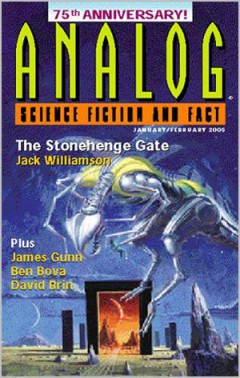
If you’ve ever wanted a peek inside the mindset of the utilitarian pragmatist and unabashedly statist, then you would do well to read or listen to David Brin’s novelette “Mars Opposition.” Begun in 2003 with the launch of the Mars Exploration Rover Mission (MER), and originally published in Analog in January 2005, “Mars Opposition” has been republished in audio format in episode 298 of StarShipSofa (free). It is a well-written tale, though predictable and unsubtle, and is superbly narrated by Dave Robison. Unfortunately, Brin uses the story as a vehicle for riding some of his political hobbyhorses:
- defending government and its officials from antigovernment criticism,
- making government smarter with the help of the technocratic elite (such as himself),
- and smearing libertarians as dogmatic, asocial creatures who are clueless about the human condition.
Fair warning, what follows is spoiler-ridden.
“Mars Opposition” opens at Cape Canaveral with the landing of a strange spaceship. What follows is an even stranger first contact with 50-odd beings who claim to be Martians. They each bear a long list of human names and offer payment in exchange for being given the location of one person on the list. When one of these people — Bruce Murray, one of the founders of the Mars Planetary Society — happens to be present, the Martian looking for him promptly walks over and “shoots him dead.” Before long, the Martians are scattering in all directions, each hunting for the next name on their list.
Why are Martians killing these people who all happen to be space enthusiasts? The unidentified narrator (from here on referring to the POV character, not Dave Robison) eventually figures everything out and explains it to us as events unfold. As fresh and interesting as this take on a first contact story is, I won’t dwell on it and will instead turn to examining Brin’s political message.
Brin himself describes “Mars Opposition” as a creepy campfire tale. That would make the Martians the boogeymen of the story. And the Martians — the boogeymen — are, as the narrator calls them at the end, ultimate libertarians.
[continue reading…]
Help Promote Prometheus Unbound by Sharing this Post
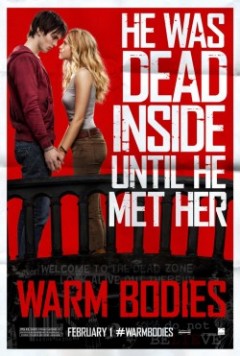
Warm Bodies, based on a novel by Isaac Marion that I haven’t read, is a modern take on Romeo and Juliet, only this time Juliet meets and falls in love with Romeo after he’s already dead. It is a tale about the power of love to induce positive change and tear down walls even in trying times — of learning to see others as individuals, looking past their superficial group characteristics, and recognizing, even accepting, differences. But all is not moonlight and roses. Life, if one can call it that, among the living and the dead is hard; and even in the end, one cannot eschew entirely a hardnosed realism, as there are some too far gone even for love to heal.
Julie, played by Aussie Teresa Palmer, is the daughter of the military leader (John Malkovich) of an authoritarian, walled compound that houses perhaps the last remaining settlement of living human beings. R, played by Nicholas Hoult, is a zombie who spends his days wandering aimlessly around an airport and occasionally feasting on the flesh of the living. He’s a little off as far as zombies go, in ways you’ll have to see for yourself.
The two meet one fateful day when Julie is out on a pharma-salvage mission with a group of her peers and R is leading a pack of zombies in a hunt for their next meal. Can these two star-crossed lovers make it work? Will the living give R a chance before putting a bullet in his brain? Will R’s fellow undead refrain from eating Julie’s?
[continue reading…]
Help Promote Prometheus Unbound by Sharing this Post
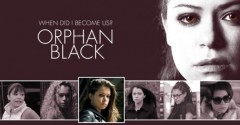
Tatiana Maslany as Alison, Helena, Sarah, Beth, Cosima, and Katja.
Orphan Black is a new science fiction television show produced by BBC America and Space, starring Canadian actress Tatiana Maslany. I recently discovered this series, the first season of which just finished airing in the beginning of June 2013, and I plowed through all 10 episodes in two days. It’s a smart, complex, often dark yet at times quite funny, and well-paced show with a continuous narrative arc that explores the issues of identity and intellectual property. There is fine acting all around but the two standouts are Tatiana Maslany, who plays many roles on the show for which she deservedly won a Critics’ Choice Television Award for Best Actress in a Drama Series, and Jordan Gavaris, who plays the foster brother of one of Maslany’s characters.
Minor spoilers follow, but everything I mention is revealed in the first episode or featured prominently in the official publicity for the show.
The science fiction element of the show is pretty low key. You won’t see much in the way of futuristic technology in this series. Instead, the plot revolves around the controversial subject of human cloning and the early stages of body modification and genetic engineering. Who are we if we are not biologically unique, if there are others out there who are genetically identical to us? How much would our experiences and personal choices shape who we become despite this? What would you do if you encountered to your surprise not one but two or three or more other people who look exactly like you? What is it that makes us human? These are some of the questions explored in Orphan Black.
The series begins by introducing us to the main character of the show, Sarah Manning, played by Maslany. Sarah is an orphan, born in Great Britain, raised by a foster mother, and moved to Canada at an early age. Now a young woman, we meet her trying to escape a wild life of crime, drugs, and an abusive boyfriend. Sarah aims to get her life back together, reclaim custody of her daughter Kira from her foster mother Mrs. S, and scrounge up enough money to make a new life somewhere for herself, her daughter, and her foster brother Felix (played by Gavaris).
[continue reading…]
Help Promote Prometheus Unbound by Sharing this Post
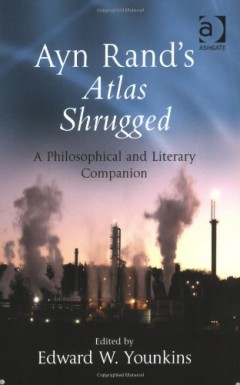
Koch Research Fellows Ed Younkins, Jomana Krupinski, and Kaitlyn Pytlak have shared with me the results of a survey they conducted of 250 Business and Economics professors and 250 English and Literature professors. They asked these two groups of professors to rank the best novels and plays about business. The top 25 from each group are listed separately in the table below. What makes the results particularly interesting is that 15 titles appear on both lists, indicating a surprising level of agreement between the two groups of professors. But the two groups did not rank the 15 the same and each selected 10 other books the other group did not, so there was significant disagreement as well.
[continue reading…]
Help Promote Prometheus Unbound by Sharing this Post















